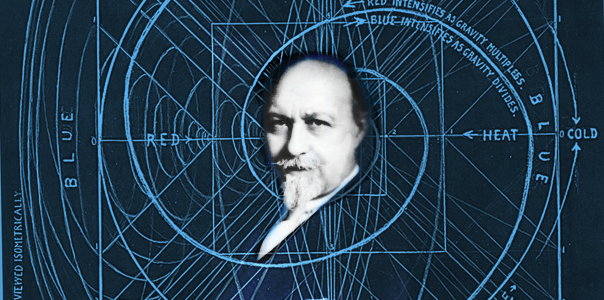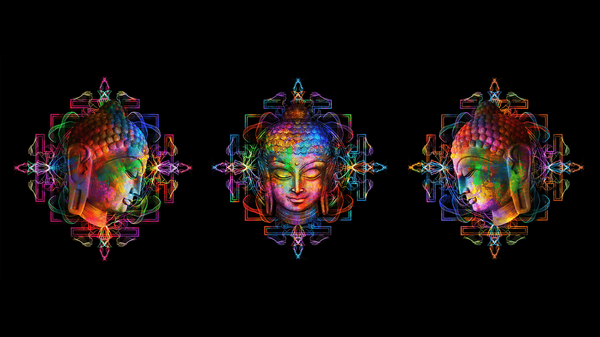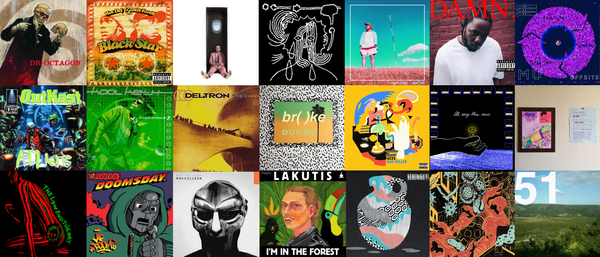Jordan Lejuwaan • • 7 min read
5 Modern Da Vinci’s Rules of Success

Walter Russell is the 20th century Renaissance man you’ve probably never heard of.
When I say Renaissance man,
I mean it. Here’s a short summary of his vast accomplishments:
- Accomplished philosopher, musician, composer, painter and sculptor. He worked with many famous subjects such as President Roosevelt and Thomas Edison
- Without every studying architecture, he designed and built over $20 million worth of buildings around New York City, including the renowned Hotel des Artistes
- Predicted the existence of Neptunium and Plutonium in 1926 (well before the invention of the atomic bomb), saying if they were ever discovered, the pressures of this planet would not be enough to hold them together
- Founded and lectured at the University of Science and Philosophy
- A champion figure skater, Russell even won competitions at age 69 against competitors in their 20’s
In his biography, The Man Who Tapped The Secrets Of The Universe, Russell shares the 5 rules that allowed him to accomplish so much. Each rule builds on those prior, culminating in the ultimate recipe for genius.
1) Humility
Make your every action in service of others. Ambitions seeking only to serve the self inevitably end in dissatisfaction.
“No one can multiply himself by himself. He must first divide himself and give himself to the service of all, thus placing himself within all others through acts of thoughtfulness and service.
The personal ego must be suppressed and replaced with the ‘universal ego.’ One must not be the part, one must be the whole. The ‘I’ must be forgotten. I had it. All men have it, and all pass through that stage.
I once thought that greatness was the only thing worthwhile, but when I achieved it to some extent I found that I was not satisfied with it, because there was something beyond, so much higher.”
2) Reverence
Become deeply aware that you are an interpreter of universal consciousness.
Knowthat you have the potential to create anything, to co-create INCREDIBLE things, because you are a tool of the Universe, and are ultimately one with everything.
“No one can make a sale, write a book or invent anything without first having that deep reverence which makes him know and feel that he is an interpreter of the thought-world, one who is creating a product of some kind to fit a purpose. If you are alone long enough to get thoroughly acquainted with yourself, you will hear whisperings from the universal source of all consciousness which will inspire you. These are actual messages, actual revelations, telling you, guiding you, showing you the way to the Source of the thought-world into the world of what we call creation to produce through your interpretations the images which crowd your mind which you do not see. You will soon find yourself using the cosmic forces which you also cannot see, instead of working blindly in the dark.
That thought energy is focused in our brains just as the spot of light is focused by a lens to become a more brilliant spot of light, gathered together from a large area into a point until it is strong enough to burn. Well, you feel that consciousness or that universal intelligence of space itself because of that sensation focused in your body which deceives you into believing that your body is you. Well, it isn’t. Your body is merely a machine made to express the thoughts that flow through you and nothing more.
I learned to cross the threshold of my studio with reverence, as though I were entering a shrine set apart for me to become co-creator with the Universal Thinker of all things. I do not say as I enter my studio, ‘I am a sculptor, I ought to be able to do that thing.’ Instead of that I say, ‘I am an interpreter who can think that thing within me which is worthy of being done.’ When I get that feeling, that rhythm, that meter, that measure which comes to me as an inspiration, then I know that I can produce it, and nobody under Heaven can tell me that I cannot produce it.”
3) Inspiration
Once you are in a place of knowing with your one-ness with the Universe, you need only silence to bring about divine inspiration.
“Many have asked if I could more specifically direct them how to kindle that spark of inner fire which illumines the way to one’s self. That I cannot do. I can merely point the way and tell you of its existence. You must then find it for yourself. The only way you can find it is through being alone with your thoughts at sufficiently long intervals to give that inner voice within you a chance to cry out in distinguishable language to you, ‘Here I am within you.’ That is the silent voice, the voice of nature, which speaks to everyone who will listen.
Lock yourself up in your room or go out in the woods where you can be alone. When you are alone the universe talks to you in flashes of inspiration. You will find that you will suddenly know things which you never knew before. All knowledge exists in the God-Mind and is extended into this electrical universe of creative expression through desire. Knowledge is yours for the asking. You have but to plug into it. You do not have to learn anything, in fact, all you have to do is recollect it, or recognize it, for you already have it as your inheritance.
By meditation and communion with God and talking to Him, I mean not just sitting silently, in a prayerful attitude as though separate and apart from God, adopting a faith and belief state of mind, but actually becoming ONE WITH Him, desiring with Him as co-creator of all things, desiring without words, desiring dynamically with knowledge, not with blind faith and belief, but knowledge, that fruition will as surely follow that desire as that fruit will appear on the tree in its orderliness of law’s workings as a result of desire in its seed.
I believe that every man can multiply his own ability by almost constant wordless REALIZATION of his unity with his Source. I have, myself, made that feeling so much a part of me that I actually feel myself to be an extension of the Source; that my works are not my own but interpretations of this Source. I believe that such constant realization keeps one so exalted with inspiration that one is thus insulated from the thousands of distractions which lead one away from his own design of life, and thus protects him from petty temptation, from disease, and from those man-harms which constantly come to those who are not thus One with God.”
4) Deep Purpose
Inspiration is useless without direction. You must find your ultimate purpose in this life in order to make full use of your new-found knowledge.
“The charge behind the bullet can either be used for the purpose intended or dissipated uselessly. You have to gather your energy together in the same manner, conserving it and insulating it from dissipation in every direction other than that of your purpose.
There is no use for energy of any kind whatsoever unless there is a plan back of it. You cannot get creative value out of concentrated energy by letting it go back into the static condition from which you borrowed it, unless you have a plan for its use.”
5) Joy & Ecstasy
The joy of achieving refuels you with the energy required to carry on to the next achievement. It is by cultivating a deep-seated, untouchable joy that you become able to realize your genius without any interruptions.
“You will be amazed when I tell you that the compensating principle of balance which reloads you with new thought-energy after you have expended all in some creation lies in joy, happiness, enthusiasm, inspiration, intuition, effervescence, and by that climaxing word of all words, ecstasy. Think of it, how simple it is to know that the joy of an achievement recharges you with a balancing energy for the next achievement.
The ecstatic man is the most dynamic, the most silent and the most undemonstrative of all men. By ecstatic I mean that rare mental condition which makes an inspired man so supremely happy in his mental concentration that he is practically unaware of everything which goes on around him extraneous to his purpose, but is keenly and vitally aware of everything pertaining to his purpose.
The great composers, sculptors, painters, inventors and planners of all time were in such an ecstatic condition during their intensive creating hours that the million petty trivialities which short-circuit the energy and waste the time of most men never found an opportunity for even entering their consciousness. From this high mental state of ecstasy down to the simple state of what we might call just happiness or enthusiasm, you can construct a thought-power pressure gauge in which you can see that pressure rise or fall.
He who cultivates that quiet, unobtrusive ecstasy of inner joyousness can scale any heights and be a leader in his field, no matter what that field is. He who never finds it must be content to follow in the footsteps of those who do, and thus be self-condemned for life to obscurity. By inner joyousness I do not mean the visible surface joyousness of the hail-fellow-well-met with his cheerful smile and manners. I mean the almost hidden joyousness of deeply banked fires which need no dramatic expression to evidence their existence in work. This joyousness is that quiet, invisible boiling up of the inspired spirit of the great thinker. He may be sitting quietly in his room, alone with himself and the universe, or he may be in the company of other humans. There is no violent surface indication of the ecstasy which great thinkers alone enjoy. There is nothing dramatic about it, but there is some subtle light in the eye of the inspired one, or some even more subtle quiet emanation which surrounds the inspired thinker, which tells you that you are in the presence of one who has bridged the gap which separates the mundane world from the world of spirit.
And it should be every man’s greatest ambition to be that kind of man. With that desire in the heart of every man there could be no greed or selfish unbalance, nor could there be exploitation of other men, or hatreds, or wars or fear of wars.”










